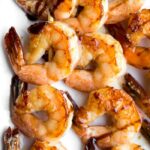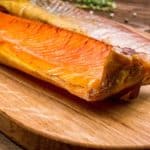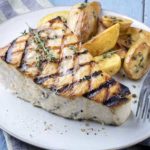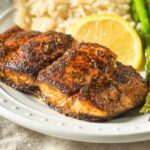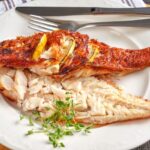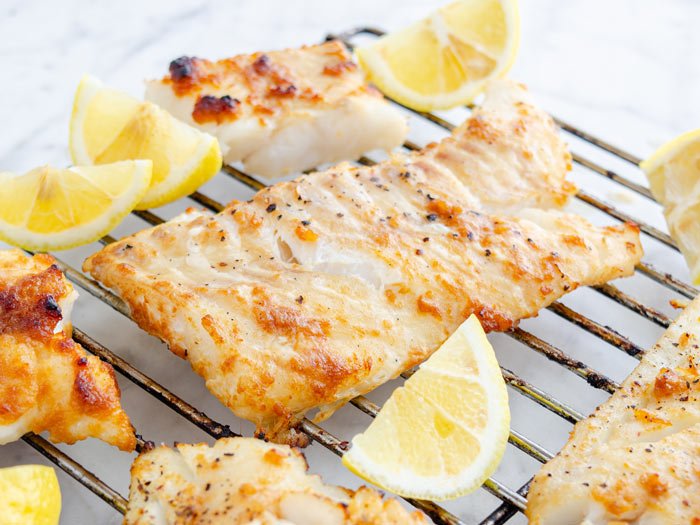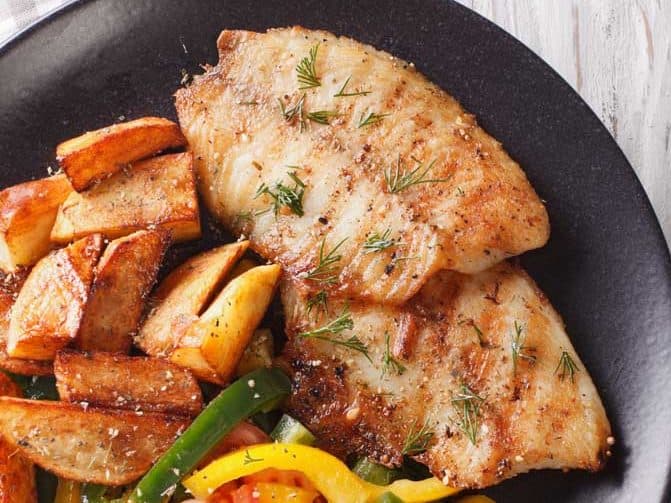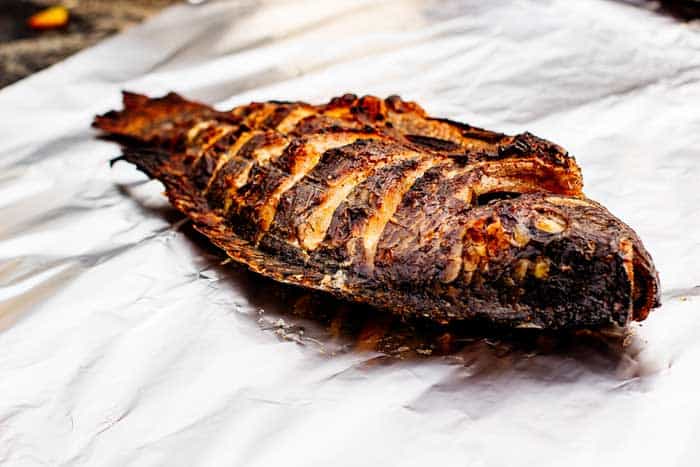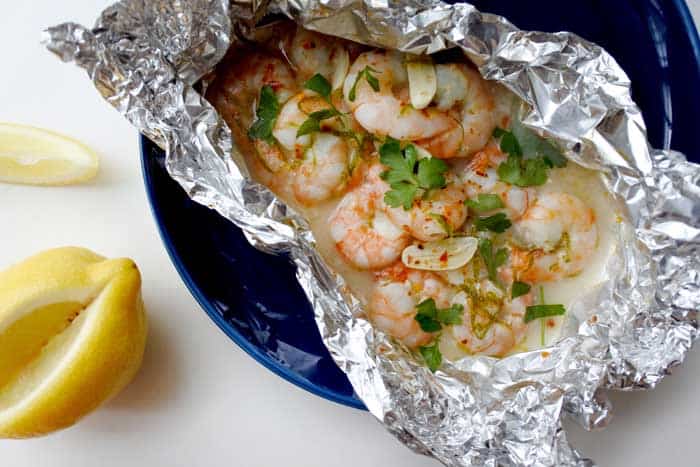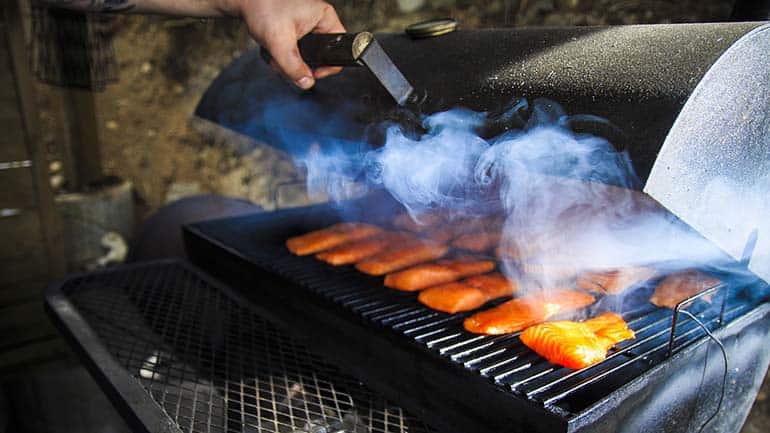Smoked shrimp skewers marinated in garlic and basil leaves before cooked low and slow over hickory. This easy recipe only takes an hour from scratch and is the perfect smoked seafood dish.
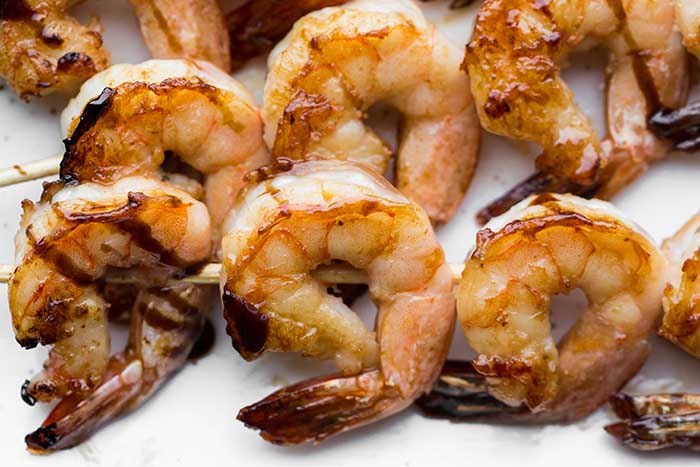
For a light addition to your barbecue spread that can accommodate (almost) anyone, toss these shrimp skewers on your smoker grates. They are easy, loaded with flavor, and only take an hour to make from scratch.
A simple marinade packs our shellfish with Mediterranean flair using just a few ingredients and very little effort. With little more than olive oil, basil leaves, and crushed garlic, the marinade is fresh and carries a beautiful depth of flavor.
This is one of our best smoked seafood recipes and it’s easy to see why. From marinating to smoking woods, here’s how to smoke shrimp skewers from scratch. Let’s get smoking.
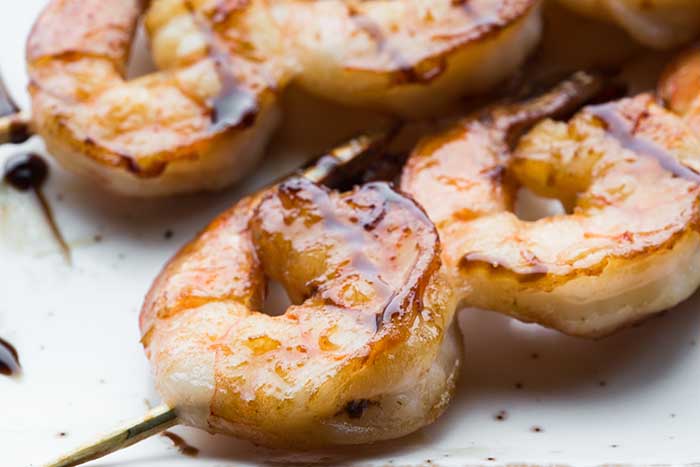
Best Type of Shrimp for Smoking
Jumbo shrimp are best for barbecue smoking because they contain enough flesh to soak up marinade and smoke without becoming overpowered by them. We also use jumbo shrimp for our foil-wrapped smoked shrimp recipe due to their ability to soak up flavor, as seen with that recipe’s butter and lemon sauce.
These shrimp are also large enough to be threaded onto the skewers without breaking, while still not being so large they dominate space.
Jumbo shrimp are often available in sizes such as 16/20 or 21/26, which denote the typical number of shrimp per pound. This means that the lower the number, the larger the shrimp.
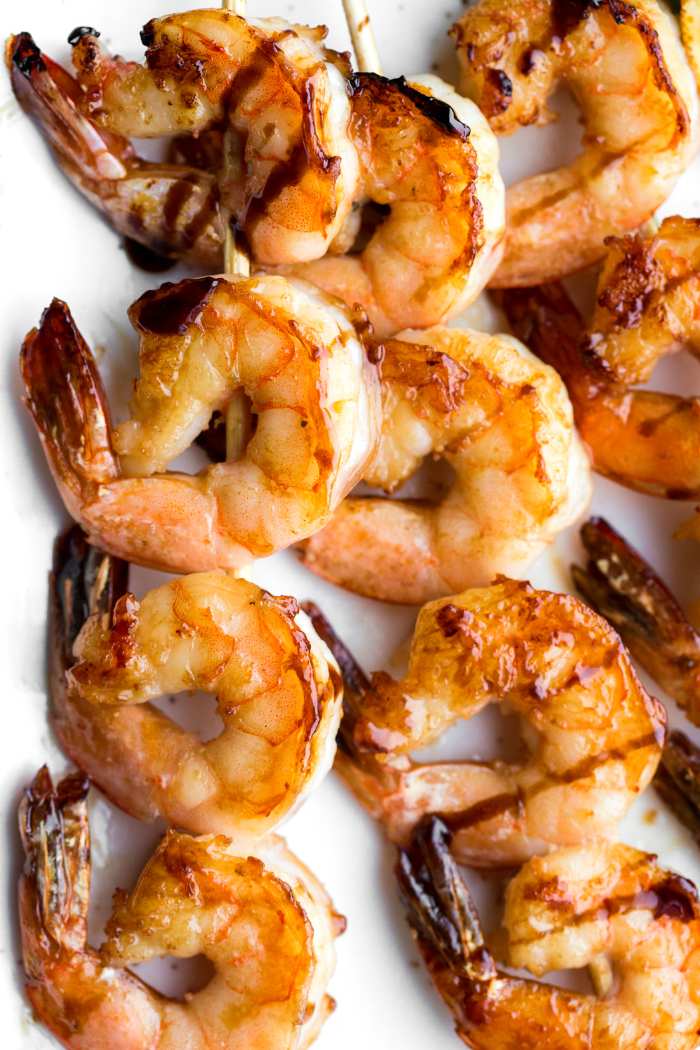
Time & Temperatures
Smoked shrimp skewers take only 30-40 minutes to cook at 225°F (107°C) and reach an internal temperature of 120°F (49°C). It’s unsafe to eat raw shrimp so use a digital meat thermometer for the most accurate measurements.
Smoking Wood
The best wood for smoking shrimp is a strong hardwood, like hickory or oak. While shellfish might seem too fragile to pair with these robust woods, our cook time is so short that we want to use something with enough punch to infuse a noticeable amount of flavor on our jumbo shrimp skewers.
Be careful not to go overboard, however, and avoid creating billows of white smoke. Use just a couple of wood chunks on your coals to help create the right amount of thin, clean smoke.
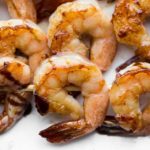
Smoked Shrimp Skewers
Equipment
- wire rack
- smoking wood chips (oak or hickory)
Ingredients
- 1 ½ lbs jumbo shrimp peeled and deveined
Marinade
- ⅓ cup extra virgin olive oil
- ¼ cup apple cider vinegar
- 2 cloves garlic minced
- 2 tbsp fresh basil leaves chopped
- ½ tsp kosher salt
- ½ tsp ground black pepper
To Serve
- lemon wedges
Instructions
- In a medium-sized bowl, whisk together the marinade ingredients
- Add the shrimp to the bowl and toss in the marinade. Cover with plastic wrap and put in the refrigerator. Leave to marinate for 30 minutes.
- Fire up your smoker to 225°F (107°C). If you are using a charcoal grill, ensure you are set up for 2-zone indirect grilling. Add wood chips to coals or wood tray.
- Remove shrimp from marinade and pierce onto skewers in through the tail-end and out through the head-end to form a C-shape.
- Arrange the shrimp skewers on a wire rack. Transfer rack to smoker grates. Close lid and smoke until shrimp internal temperature is 120°F (49°C), about 30 minutes. The shrimp should be opaque and pink in color.
- Squeeze lemon wedges over shrimp and serve
